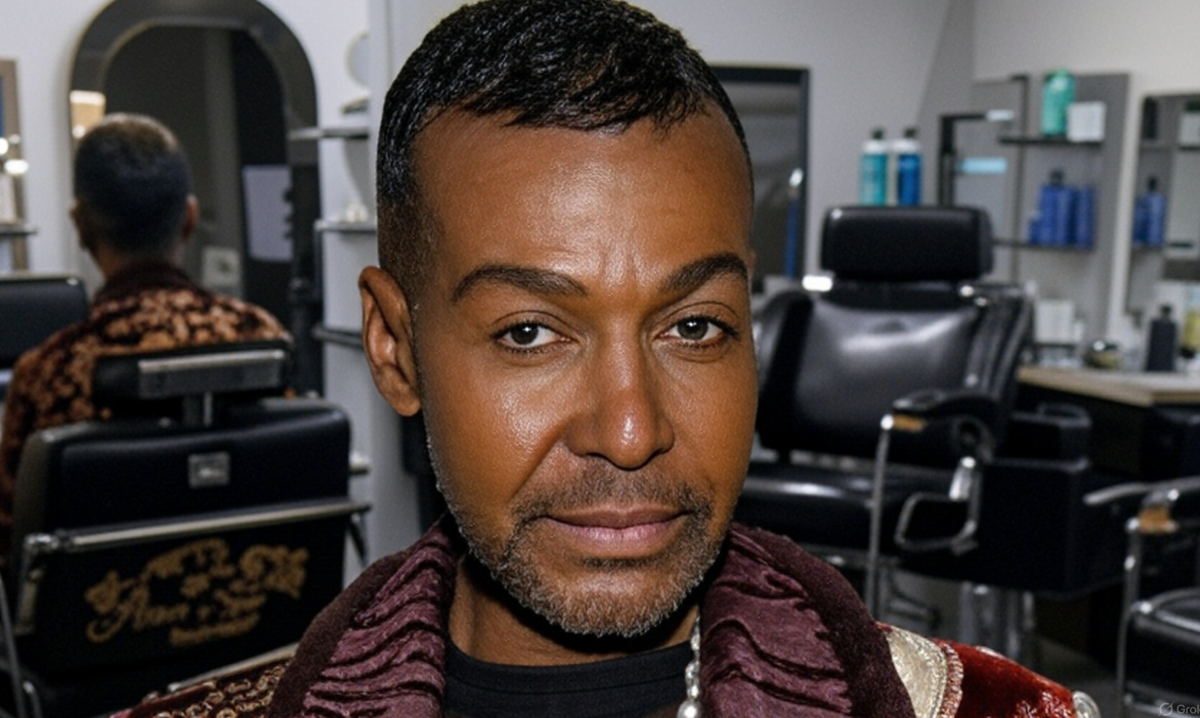Prostate cancer is one of those diseases that strikes older black men more than others. An Atlanta celebrity — Real Housewives of Atlanta alum Dwight Eubanks — has confirmed that he has been diagnosed with prostate cancer.
Eubanks, a well-known Atlanta hairstylist, announced that he has been diagnosed with stage four prostate cancer and is channeling pain into purpose by joining ZERO Prostate Cancer (ZERO), the nation’s leading advocacy and support organization for prostate cancer awareness, as a brand ambassador.
Eubanks is a prominent hair stylist and entertainment icon who has spent over 30 years in fashion and cosmetology.
He rose to fame on the Bravo reality series “The Real Housewives of Atlanta”, and also appeared on “Married to Medicine” as creative director of the Lisa Nicole Fashion Line. Joining forces with ZERO, Eubanks will help raise awareness about prostate cancer and call for Black men to know their numbers and get screened.
Today, one in six Black men will be diagnosed with prostate cancer during their lifetime. Moreover, Black men are 70% more likely to be diagnosed and twice as likely to die from it.
“A prostate cancer diagnosis is crushing but I’m grateful to still be in this fight and use my platform to help others impacted by this disease,” said Eubanks. “It is critical that men — especially Black men who are disproportionately diagnosed with prostate cancer — become their own health advocates and push for information, screenings, and lifesaving care. I am deeply thankful for ZERO’s support and partnership and I hope by sharing my story I will help to save more lives.”
Every two minutes a man in the U.S. is diagnosed with prostate cancer. This year alone, over 300,000 new cases of prostate cancer are expected to be diagnosed and over 35,000 men will die from the disease — fathers, uncles and sons lost too soon.
“Though we know exciting medical breakthroughs are on the horizon to treat those with the disease, awareness and being proactive to diagnose prostate cancer early are critical,” said ZERO Board of Directors Medical Chair, Dr. Alicia Morgans, a Genitourinary Medical Oncologist at the Dana-Farber Cancer Institute and Associate Professor of Medicine at Harvard Medical School. “The truth is prostate cancer can be curable with a 99% survival rate at 5 years when caught in the earliest stage. That’s why Dwight’s story and message to other men to get screened and know your family history is so powerful. Screening can be the difference between life and death.”
“This is more than a media moment — it’s a movement,” said Courtney Bugler, president and CEO of ZERO Prostate Cancer.“Dwight’s voice and story will help to redefine how Black men talk about this devastating disease within their communities —removing the stigma, replacing fear with facts and turning silence into survival.”
Why Prostate Cancer Affects Black Men Disproportionately
Prostate cancer disproportionately affects Black men due to a combination of genetic, socioeconomic, and environmental factors. Genetically, Black men have a higher prevalence of specific gene variants, like those in the BRCA1/2 and HOXB13 genes, which increase prostate cancer risk and are linked to more aggressive forms of the disease. Studies show Black men have a 1.7-2 times higher incidence rate than White men, with a 60% higher risk of diagnosis and a 2-3 times higher mortality rate.
Socioeconomic factors play a significant role. Black men are more likely to face barriers to healthcare access, including lower rates of health insurance, limited access to quality medical facilities, and delays in screening or treatment.
Only about 48% of Black men get regular PSA screenings compared to 60% of White men, leading to later-stage diagnoses. Systemic issues like poverty and discrimination in healthcare settings also contribute to worse outcomes.
Environmental factors, such as higher exposure to pollutants or poor diet due to systemic inequities, may further elevate risk. Chronic stress from racism, often termed “weathering,” can also disrupt hormonal and immune responses, potentially promoting cancer progression.
These factors interact, amplifying disparities. For example, genetic predispositions may be exacerbated by lack of access to early detection or advanced treatments.
Addressing these requires targeted interventions like improved screening access, culturally sensitive healthcare, and research into genetic and environmental risk factors specific to Black populations.
More From AtlantaFi.com:





